I spent some weeks during the hot summer months with a Kalbelia gypsy community living in the great Thar desert in Rajasthan. Using the nearest city Jaisalmer as my base I would catch the only working service bus at four in the afternoon travelling 45 km, Indian style, on the roof of the bus into the desert with the sunset in my eyes. I would approach the gypsies, bringing sweets for the children and occasionally, medicines for some adult members. The Kalbelias are in general peaceful but moody people- one day they would invite me with the greatest warmth and hospitality for tea and even a meal of dal and chapati (lentils and bread), the next day they would bombard me with stones. I usually brought a blanket to sleep in the sand dunes near the Kalbelia camp, during daytime the temperature would reach 48 degrees but at night it was mighty cold. I would wake up to catch the only bus going back to the city at nine in the morning. I was quite fascinated by their musical instrument called Bin; I found a Kalbelia who agreed to give me daily playing lessons and I spent a considerable time learning Rajasthani folk songs and Bollywood tunes. It is a simple wind instrument with a gourd and pipe and has only 7 notes. It has a very nasal but virtuous sound, the character of the music often rather capricious and conflicting – a bit like the Kalbelias themself. Sometimes I would meet the gypsies from the desert in the big city, playing the Bin and begging for food and money.
The Kalbelias are known all over India for playing the Bin and carrying cobras in a basket for entertainment. The Kalbelia women’s traditional dress and their dance movement resembles a cobra. When a snake is found in a home a Kalbelia is usually called upon to remove the deadly animal. Some members of the community are also healers, capable of curing poisonous snake bites. Their main remedies are a secret mixture of herbs and camel urine, the bitter taste will make a person vomit. It goes to the stomach and dilutes the poison before it goes on to attack the heart, eyes and brain. Some healers also use mantras, they say they become possessed by gods in order to question the evil spirits affecting their patients. Some Kalbelias apply snake poison around their eyes which (according to them) is good for their health and cures headache. Others use it as a sexual stimulant, rubbing it on their sexual organs.
The occupation and identity of the Kalbelias goes beyond social dimensions, it is also deeply rooted in religious belief and traditions. The Kalbelias are followers and claim to be direct descendant of the guru Kanipa, one of the nine Naths who sit with Lord Shiva on Mount Kailash. According to Hindu traditions Lord Shiva offered Kanipa a bowl of all the poison of the universe, and after Kanipa gulped it all, Shiva promised Kanipa and his descendents that the world will take care of them. This promise includes the right to beg. Thus Kalbelias explain the right and ability to have dominion over poison and poisonous creatures as well as to beg without shame as original disciples of Kanipa. The Kalbelias believe their profession was given to them by Lord Shiva, and the world would be in danger if they went against it.
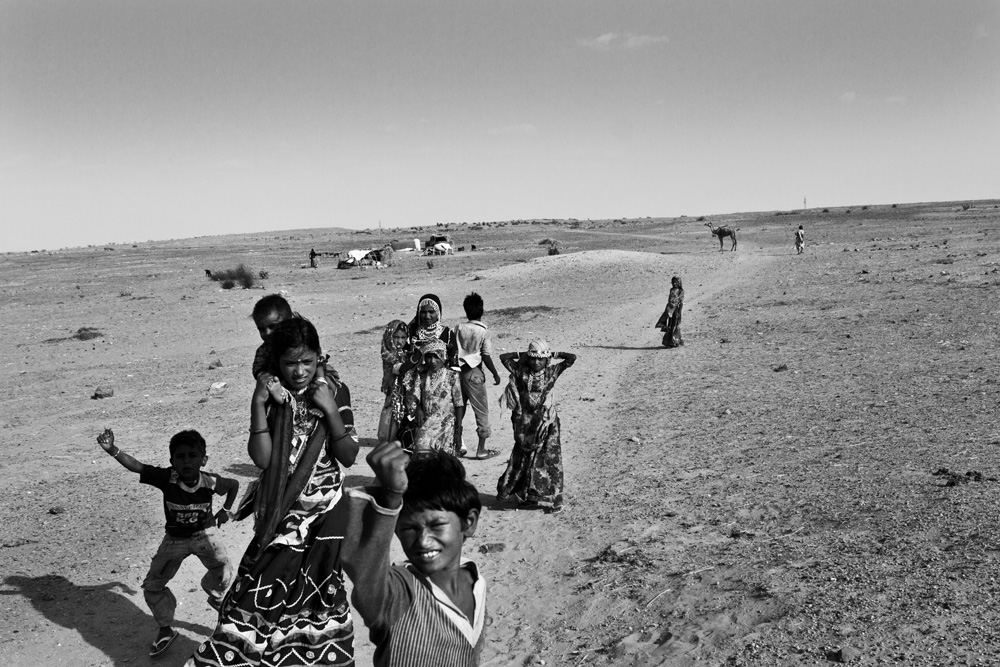
The Kalbelias live in the great Thar desert, 45 km outside Jaisalmer in Rajasthan, very close to the border with Pakistan.
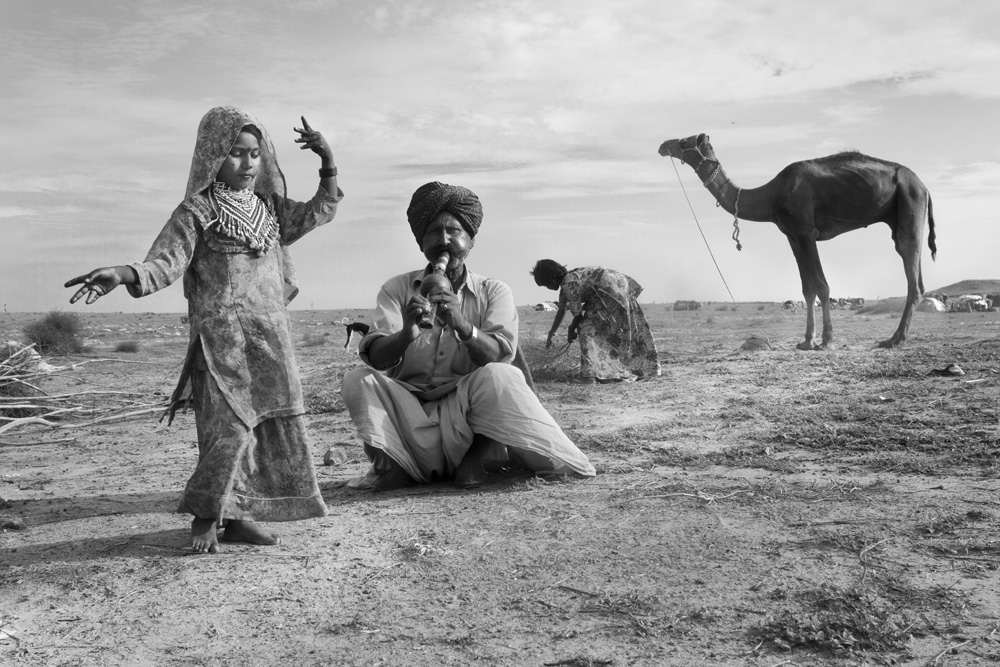
A Kalbelia man playing the Bin while his daughter performs the traditional Kalbelia snake dance. The Bin instrument is a wooden snake-pipe used to tame and seduce cobras. The Kalbelias are traditionally snake charmers but since keeping snakes is prohibited by law in Rajasthan, very few are carrying snakes in their baskets the way they used to in the past.
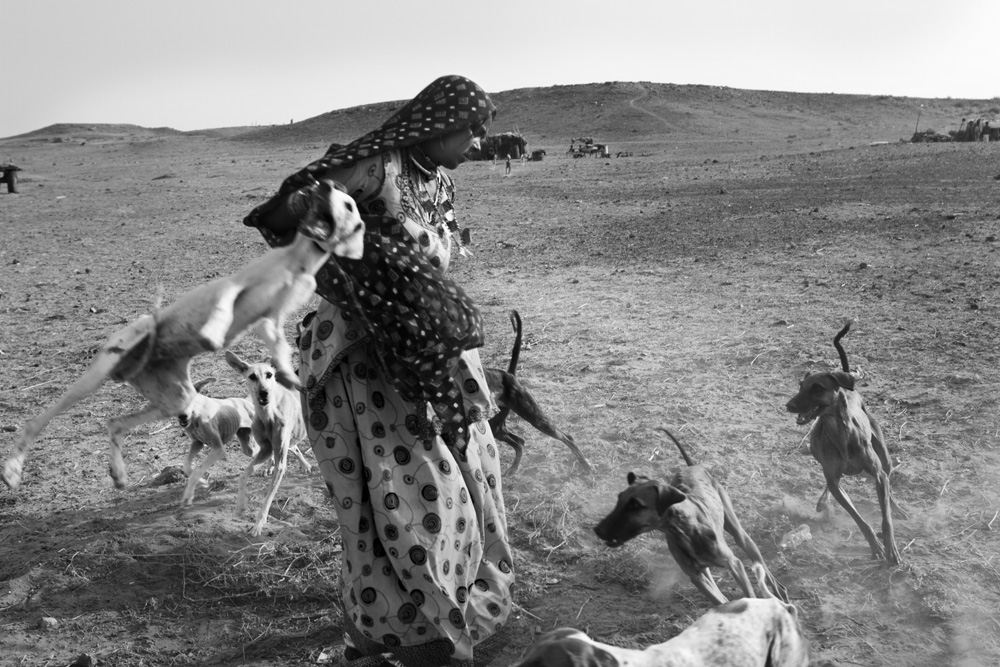
A Kalbelia woman rescues a dog from being bitten by the other dogs. Dogs are important to the Kalbelia community, alarming and protecting against strangers and intruders.
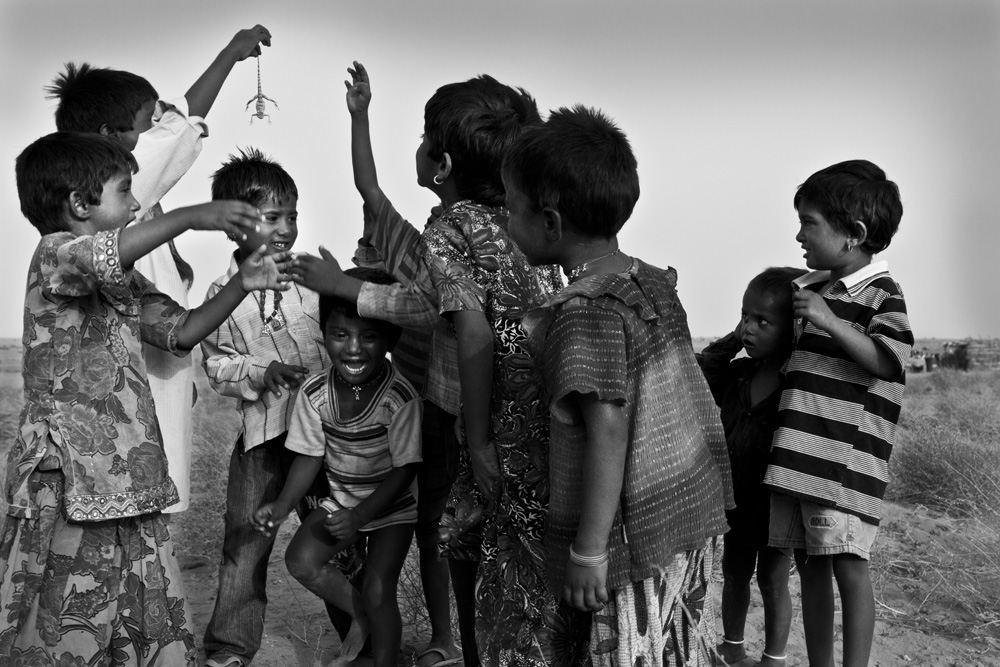
Kalbelia children playing with a lizard in the Thar desert 45 km outside Jaisalmer in Rajasthan.
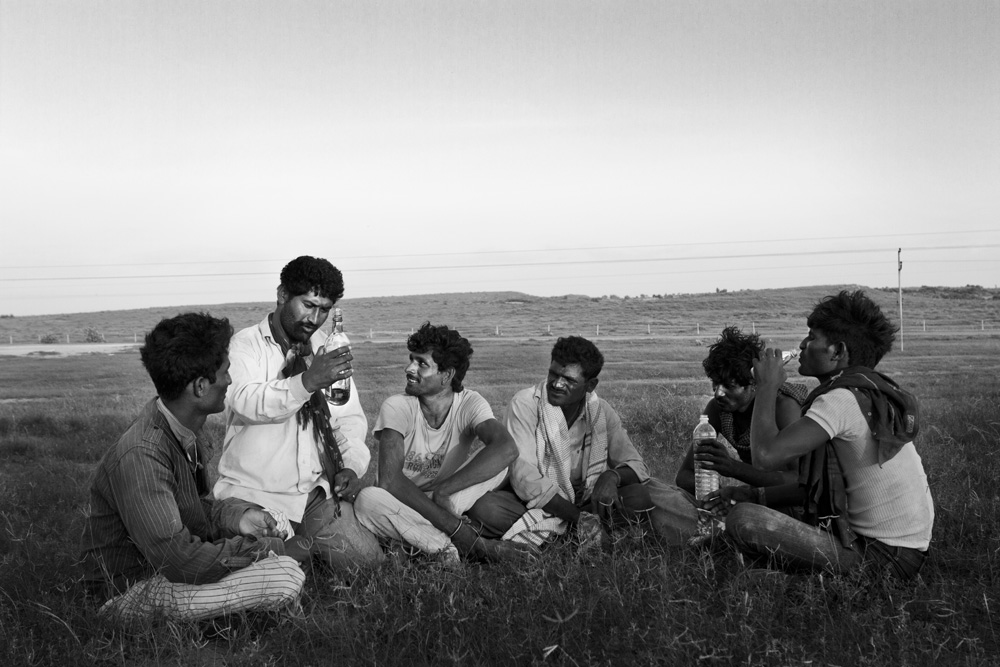
After a titing day at work, Kalbelia men who work at a construction site consume alcohol.
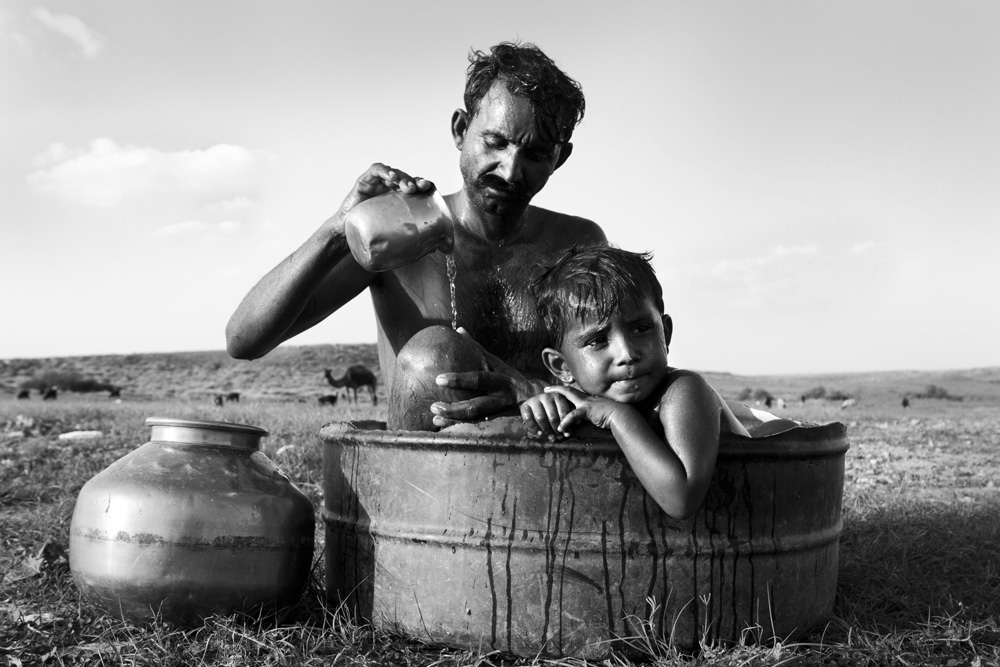
A Kalbelia man shares a fresh water bath with his son. A truck brings water from Jaisalmer to the Kalbelia community in the desert once in week.

Pappo, Kekko and Hermelia pose for a photograph during the rainy season.
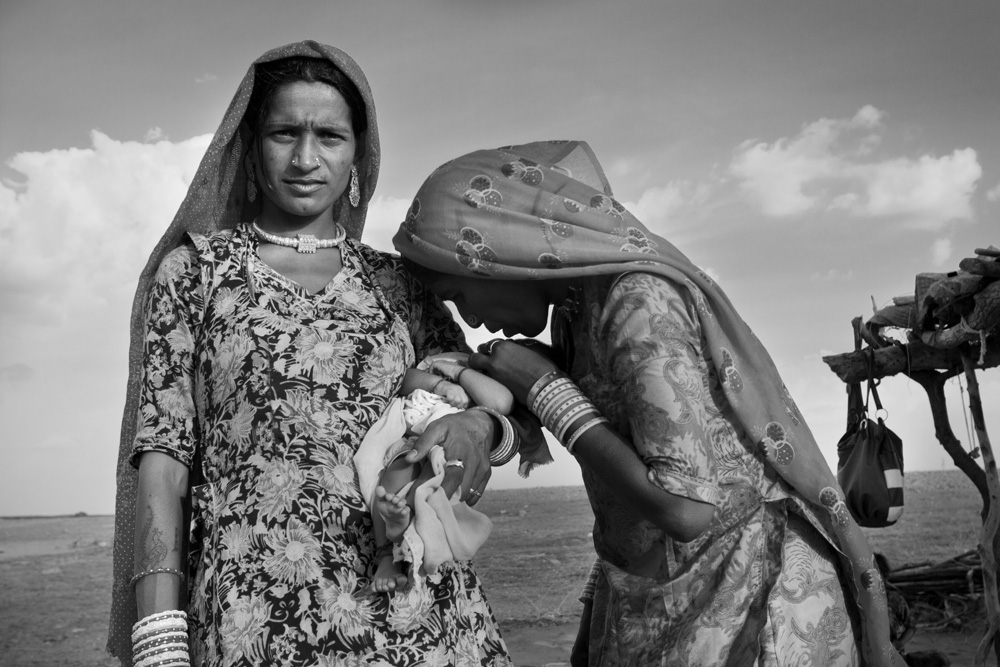
A Kalbelia woman kisses her sister’s newborn baby boy.
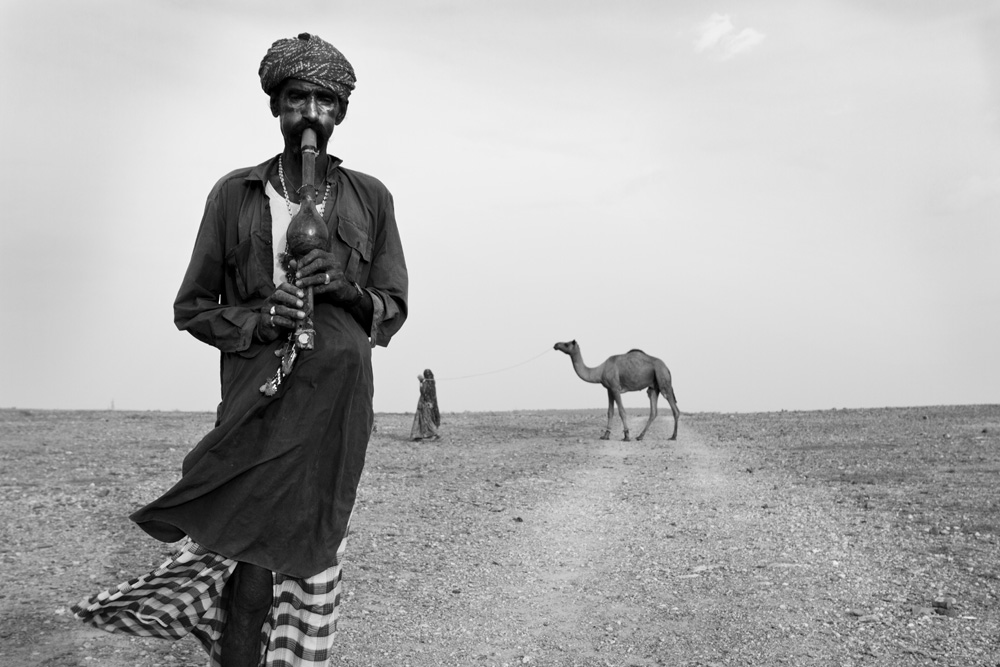
A Kalbelia man plays the Bin in the Thar desert outside Jaisalmer.
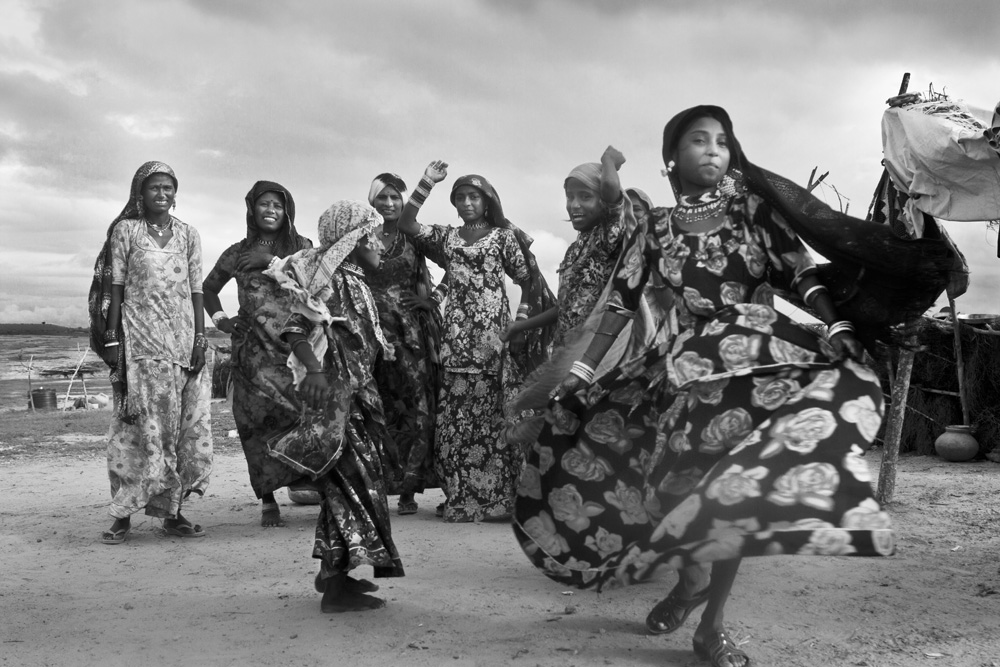
A group of Kalbelia women perform the snake dance.
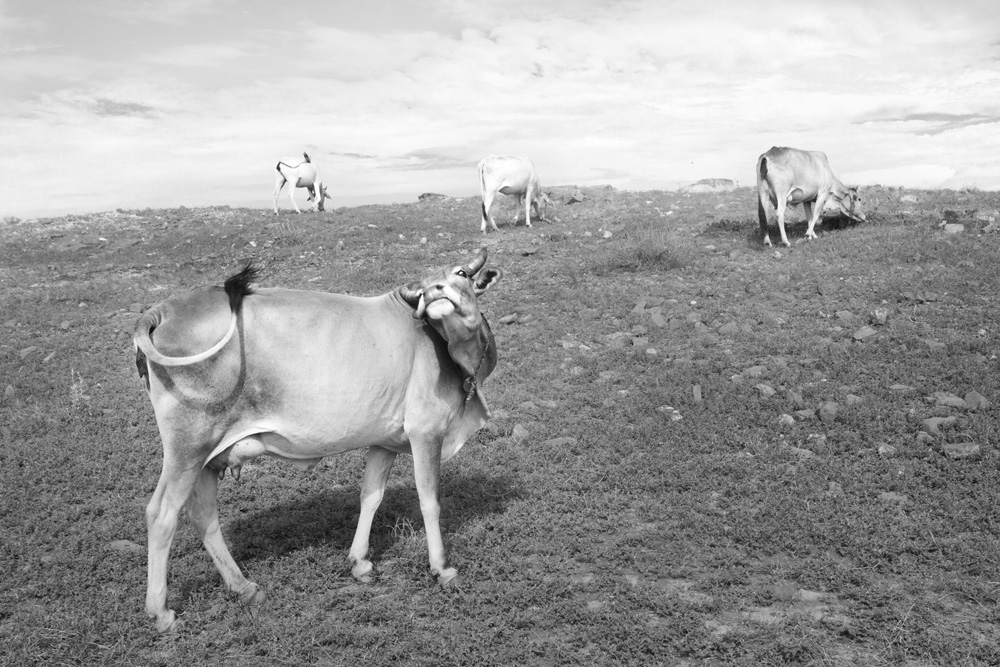
Being devout followers of Hindusim, the Kalbelias rear cows. Living in the Thar desert isn’t an excuse for them.
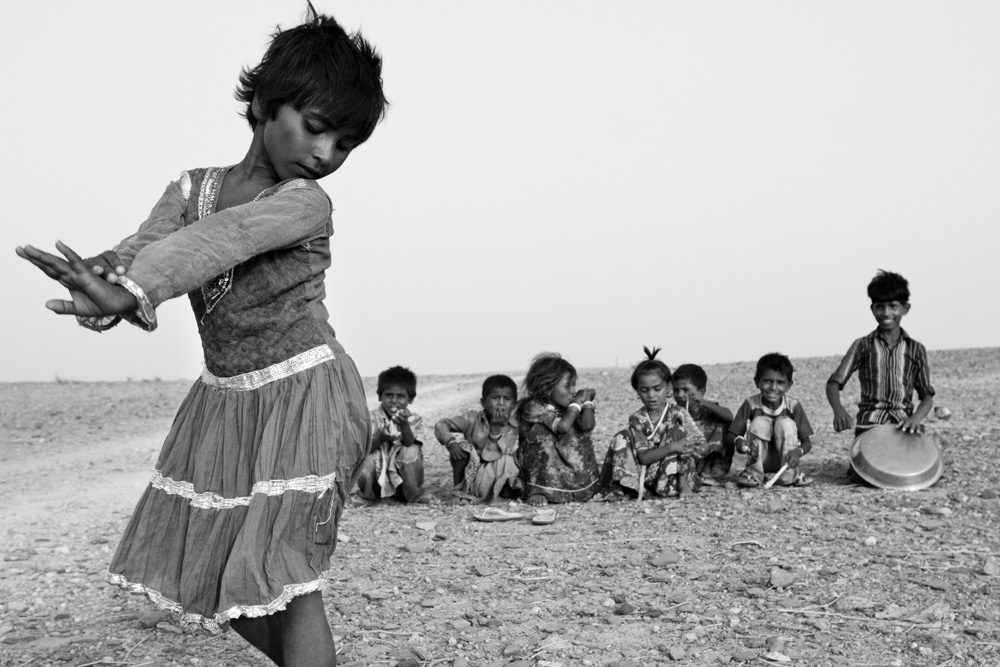
A young Kalbelia girl named Pappo practices the snake dance.
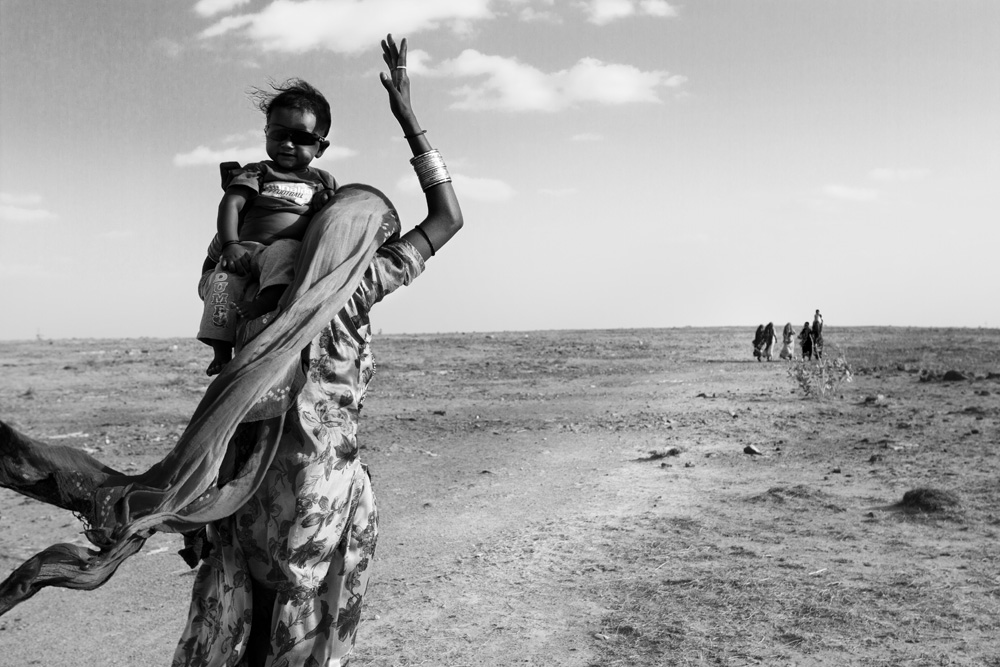
A group of Kalbelias walk to the nearest village called Kanoi in the Thar desert in Rajasthan.
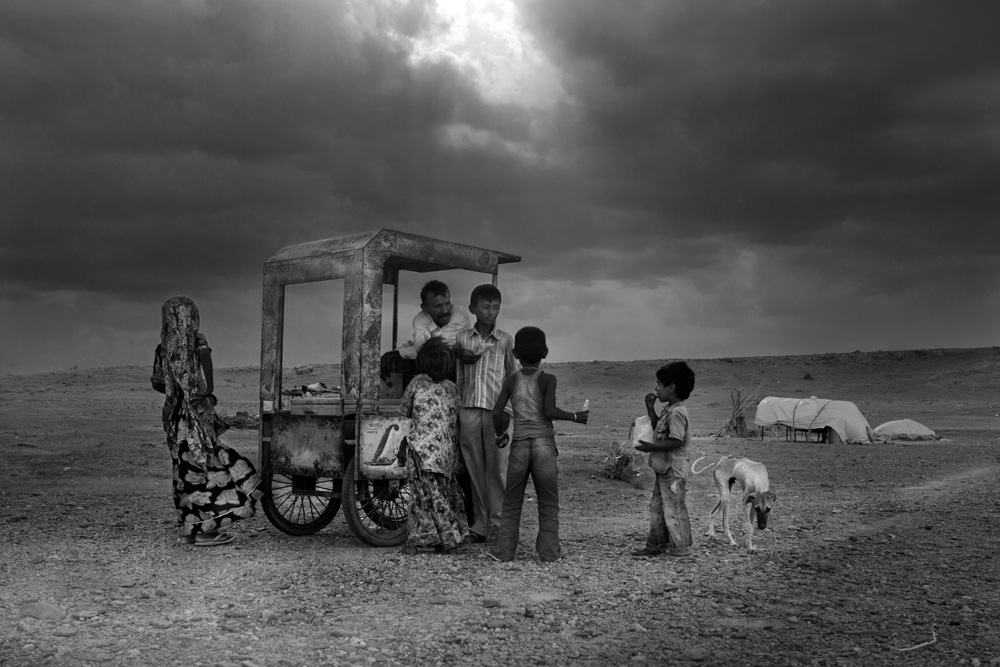
Every afternoon the ice cream man brings ice cream and other sweets from the nearest village to the Kalbelia community in the desert.
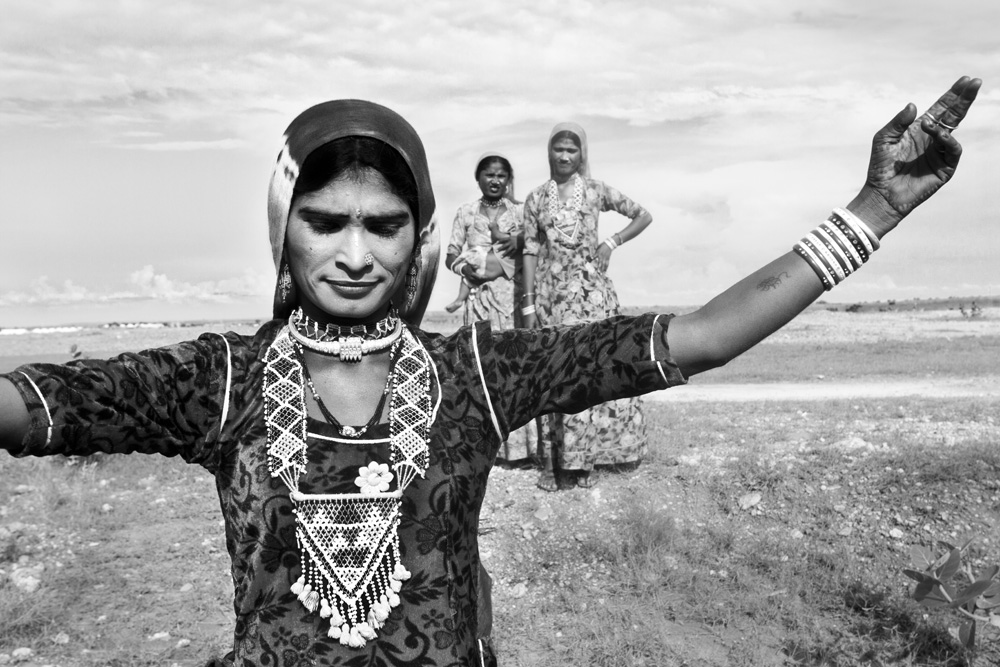
Three Kalbelia women in the Thar desert.
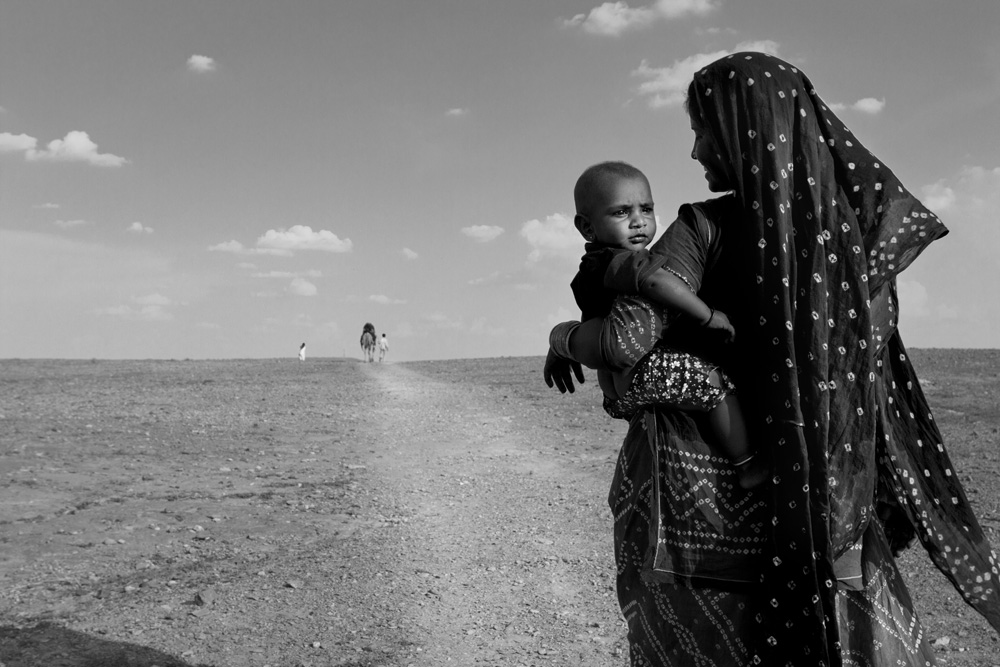
A Kalbelia woman following her husband who walks with their camel into the Thar desert outside Jaisalmer.
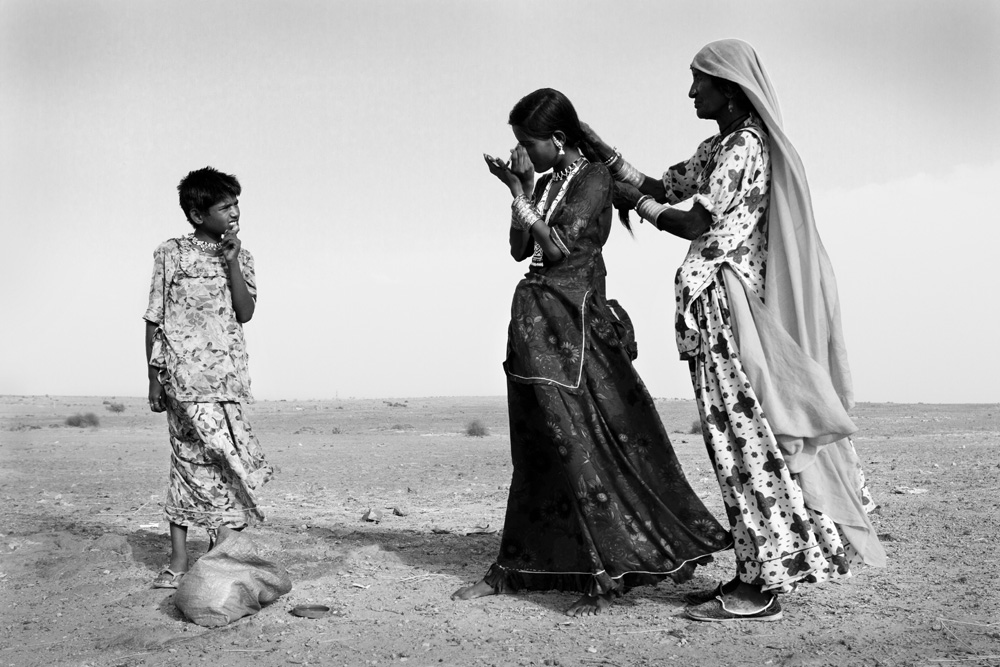
A Kalbelia woman getting ready with make-up for a dance show in the neighbouring village.
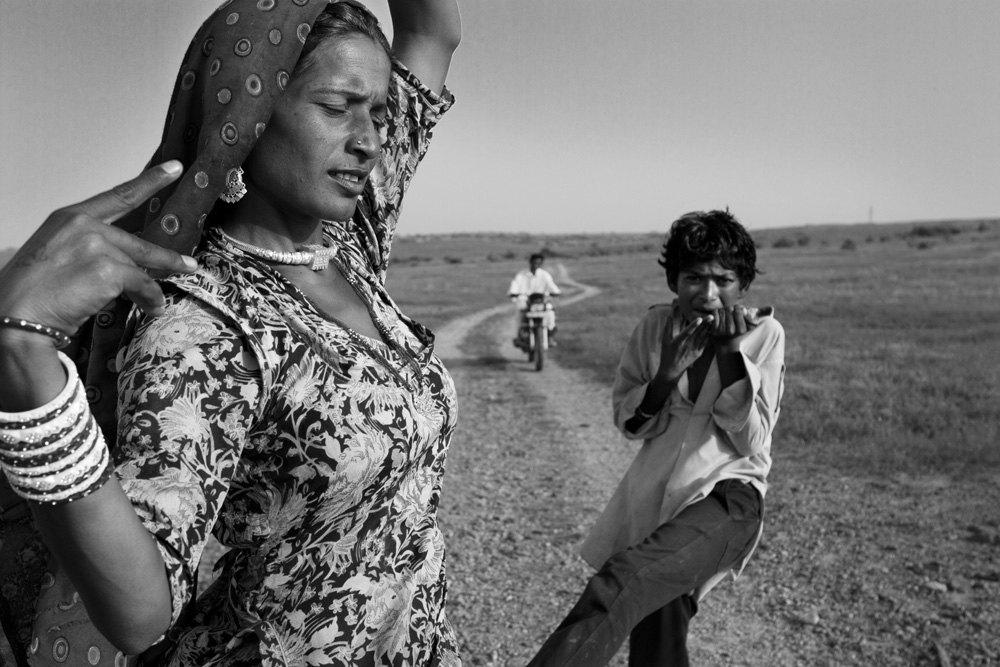
A Kalbelia woman dancing accompanied by her brother who plays the jaw harp.
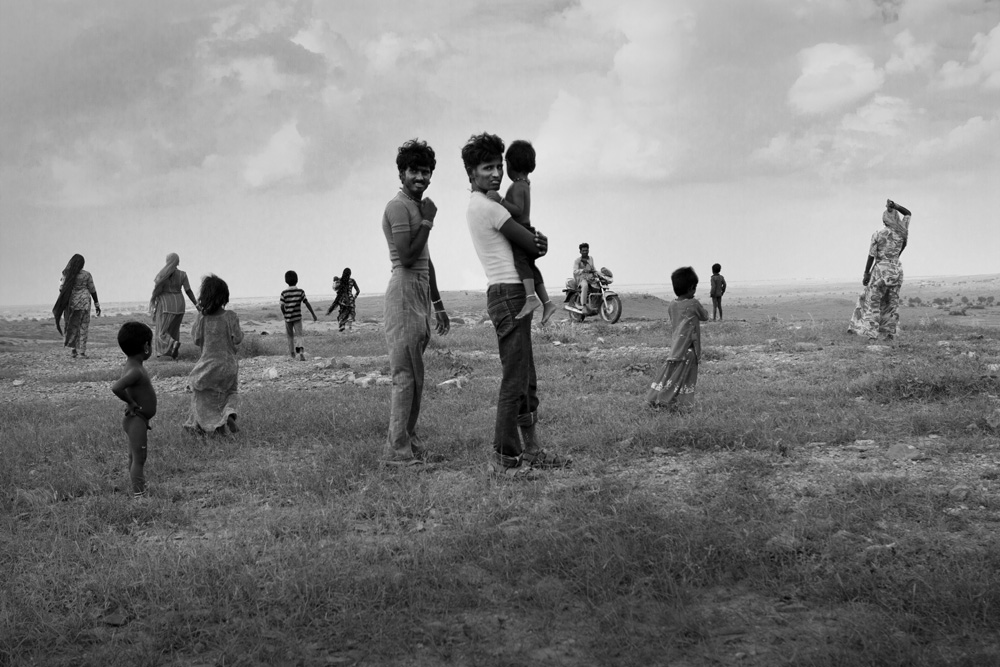
Members of the Kalbelia community in the great Thar desert in Rajasthan.
